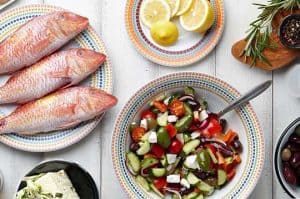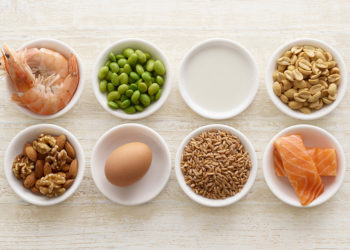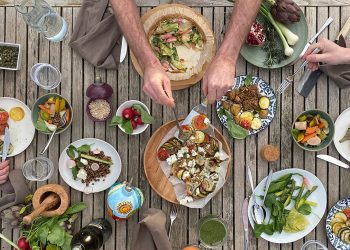Do detox diets actually work?
Detox diets are more popular than ever. Because such diets claim to clean your blood, eliminate harmful toxins from your body, and help you lose weight. However, human research on detox diets is lacking. The main criticism of detox diets is their short-term nature, yo-yo effect, and maybe even health risk.
In fact, our body works like an active memory machine. Imagine that for 7 days; you deprive your body of its usual dose of energy. Your organism will remember that as a critical situation. This memory will make your body change its storage habits. Therefore, by resuming pre-diet eating patterns, the body will store a little more fat and gain weight even faster. Crash can pose risks to our physical health. Any deficiency in vitamins, minerals or energy can lead to dehydration, fatigue, digestive disorders or hormonal disruption. Moreover, a crash diet attacks first muscles rather than fat.
Micronutritionist Aurelia Corbaz suggests rather than stressing your body by starving and depriving yourself of essential micronutrients; it is better to adopt a Hypo-toxic (low in toxins) nutritional approach by eliminating products known for containing toxins and causing inflammation. “Hypo-toxic nutrition”, she says “will help your organs responsible for body cleaning to do their job even better”. The role of the skin, lungs, liver, kidneys and intestines is to evacuate toxins from our bodies. You can reduce the load of such toxins on your body without starving and deprivation.
Nutritional recommendations for successful hypo-toxic nutritional habits
Follow these dietary recommendations to form nutritional habits creating little waste and preventing overloading your body with toxins. There are 5 aspects to follow for successful healthy nutritional habit adoption.
– Foods to exclude
– Foods to include
– Gentle cooking styles
– Enjoy every bite
Foods to exclude
Gluten-containing refined carbohydrates: white bread, pasta, pastry
Lactose-containing animal milk and milk-based foods: cream, cheese, yoghurt, butter
White sugar, cane sugar, syrup, fruit juice
Salty products, put salt ta a bare minimum
Red meat: beef, horse, lamb, pork, all types of processed meat and sausages
Hydrogenated, heated, saturated fats: margarine, pork fat
Chilly red pepper. Mildly spicy food is beneficial for health; avoid ridiculously spicy foods.
Alcohol
Foods to include

The good news is there are lots of delicious foods you can include in your Hypo-toxic nutritional plan!
Seasonal fruits and vegetables, including potatoes (baked or boiled). Here you can find seasonal fruits and vegetables in Switzerland.
Vegan alternatives to milk and yoghurt: soy, rice, almond milk or yoghurt without sugar
Vegetable proteins: soy, tempeh, chickpeas, lentils, mushrooms
All kinds of nuts
Wholegrain, low in gluten cereals: oats (certified as gluten-free), rice, quinoa, buckwheat, millet, amaranth
Lean white meat: chicken, turkey, duck
Eggs
All kinds of fish, especially fatty fish, rich in Omega-3
Lacto-fermented vegetables, miso, tempeh, kimchi
High-quality unrefined vegetable oils: olive, sunflower oil
Ghee, coconut oil
Aromatic herbs: basil, parsley, coriander, rosemary etc.
Spices: curry, cumin, garlic, cinnamon, turmeric, paprika…
Chicken or fish broths
Drinks: herbal teas, Kombucha, Kefir
Sugar substitutes: Dried fruits in moderation
Salt substitutes: soy and fish sauce, herbal salt
Gentle cooking styles for a successful detox
The less you process the food the better it is: vacuum-cooking at low temperatures, fast sauteing, oven baking with a bit of oil.
Eat fresh fruits and veggies without any heat treatment regularly. Avoid deep frying and stewing with too much fat.
At Allcook kitchen, our cooking styles and process are designed to retain as many nutrients as possible and achieve the nicest taste and texture. We stop the cooking process at the special cooling chamber to ensure a just-right cooking level (juicy meat, crunchy vegetables, slightly translucent fish, soft prawns ). Fast cooling down from 90 to 2 degrees ensures bacteriological safety. Learn more about how Allcook kitchen work.
Detox and enjoy every bite
As noted before, deprivation and crash diets don’t work. It is important to enjoy your food to develop life-long behaviours. Easier to say than to do, that is true! A hypo-toxic diet requires everyday cooking, and it may be difficult. You can free yourself from cooking by subscribing to a weekly meal box – learn more here: hypo-toxic meals at Allcook kitchen.






